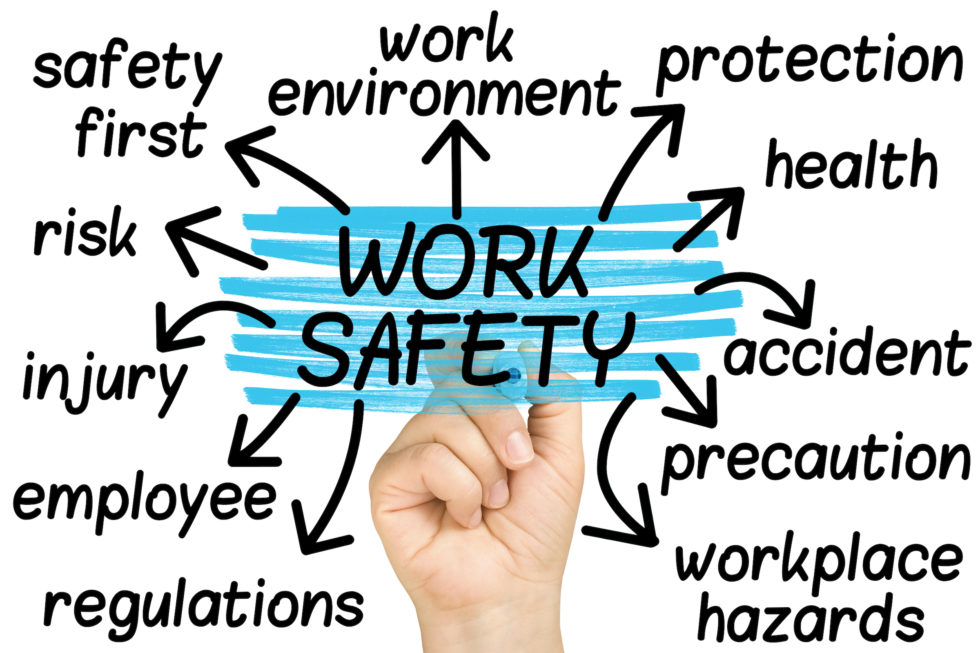
Blog Series – Section 36.1.a – Primary Duty of Care towards workers (Pt. 1)
In this blog series, we will peek into the world of The (New Zealand) Health and Safety at Work Act 2015 (HSWA), breaking it down, section by section. We will provide you with our insight into what the respective section means for a PCBU (Person conducting a business or undertaking – the technical term for a business or business owner), provide some practical advice on what the requirement looks like in reality and provide some issues to consider when applying or aiming to achieve these requirements.

HSWA ensures that everyone in the workplace is safe and free from harm. Today, we’re delving into one of its primary components: Section 36.1.a. This is especially relevant to you if you’re a business owner or someone in charge of a workplace. The Health and Safety at Work Act 2015 (HSWA) is a significant piece of legislation in New Zealand and can be viewed as a little complex. So, let’s dive in!
So, what does the legislation say:
Disclaimer! For those who know us and have worked with us, you’ll know how much it pains me to recite chapter and verse of the legislation. For me, repeating what the legislation states to those you support adds no value. Stating and knowing are two different things; knowledge of the interpretation and application of the law is where the gold is! Anyway, for the point of this blog, I must get uncomfortable for a moment and ‘quote’ legislation!
Section 36.1.a of the HSWA states:
A PCBU must ensure, so far as is reasonably practicable, the health and safety of workers who work for the PCBU, while the workers are at work in the business or undertaking.
So, what does it mean to a PCBU?
If you’re running a business (or an undertaking), your legal duty is to ensure that your workers’ health and safety is paramount. You must take all reasonable steps to eliminate or minimise any health and safety risks arising from your business or undertaking.
An essential note for Section 36 is the phrase “so far as is reasonably practicable”. The legislation defines this term, but it essentially means a balance of cost versus consequence. For example, it would not be reasonable or practicable for a business to spend $1m on a control that affords staff little protection. Equally, purchasing a low-cost solution that eliminates or reduces the risk of harm to workers and others would be reasonable and practicable. It should not be confused with the term ‘as low as is reasonably practicable’, which is generally used in high-hazard environments and means that the associated risks must be controlled, irrespective of the cost.
It’s always helpful to apply a reasonably practicable view to the hierarchy of control when conducting a risk assessment to apply a balance to what can be largely subjective. While you must take every possible measure to ensure safety, the law recognises that there may be practical limits. However, the emphasis is on you to prove you’ve done everything ‘reasonably practicable’ within your power.
So, what does this look like in reality?
In reality, this means that you need to understand the hazards and risks associated with your work and how to manage them effectively. You need to have policies, procedures, and systems supporting a positive workplace health and safety culture. You must provide adequate resources, information, training, instruction, and supervision to your workers and ensure they have the necessary skills and competencies to perform their work safely. You need to regularly monitor and review your health and safety performance and take corrective actions when needed.
The practical requirements of applying Section 36.1.a will depending on your business’s nature, size, and complexity. However, some common issues to consider are:
Someof these common issues could translate to the following actions:
So, what’s the risk?
The health and safety of workers isn’t just a legal obligation – it’s a moral one, and managing it right is good for business. By adhering to Section 36.1.a, you uphold the law and create an environment where workers can perform at their best, knowing they’re safe and cared for. The benefits to your business, in terms of productivity, morale, and reduced downtime, are immeasurable. Safety truly is a win-win.
The Safety Lab NZ can help you with all aspects of your primary duty of care. We offer audit and training services and technical solutions to help you comply with the HSWA and create a safe and healthy workplace. Contact us today to find out how we can assist you, or try our compliance scorecard. You’ll receive your free tailored health and safety report, which highlights areas of focus to begin with.